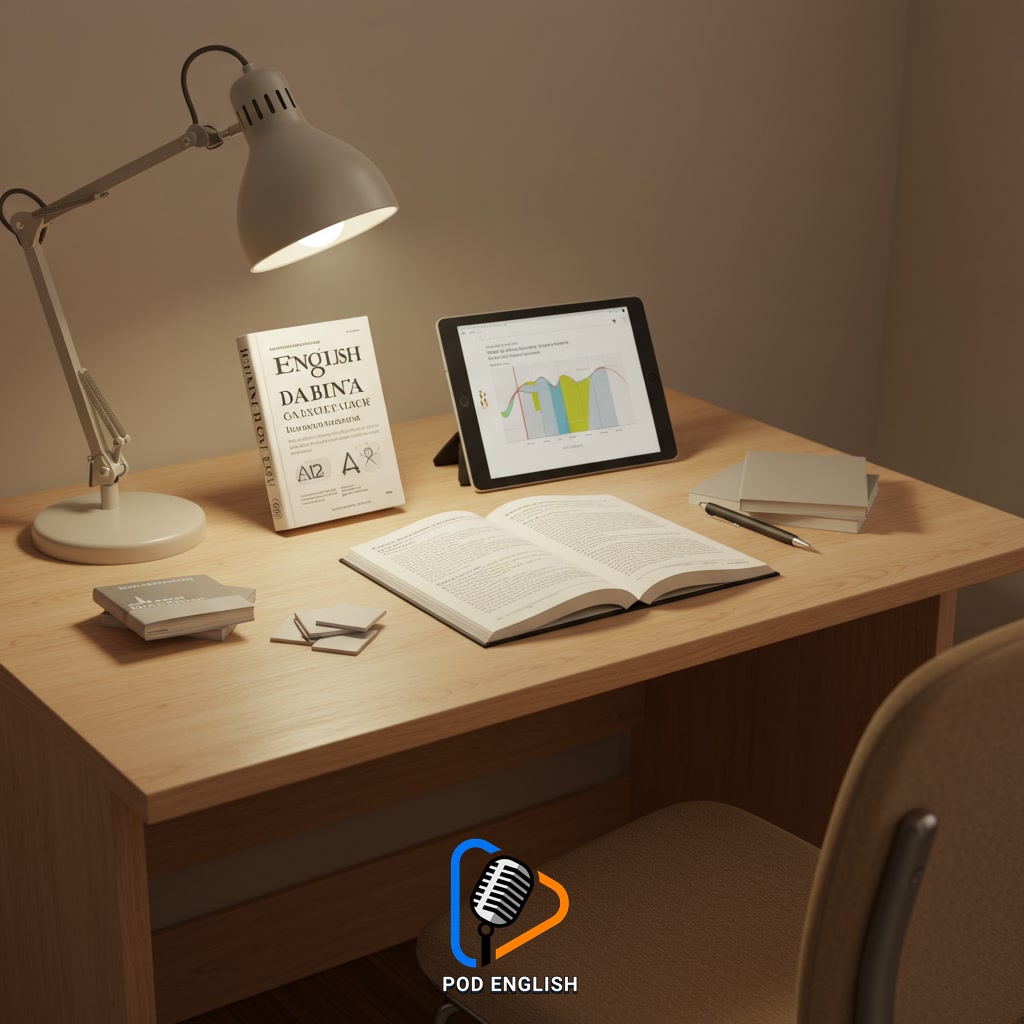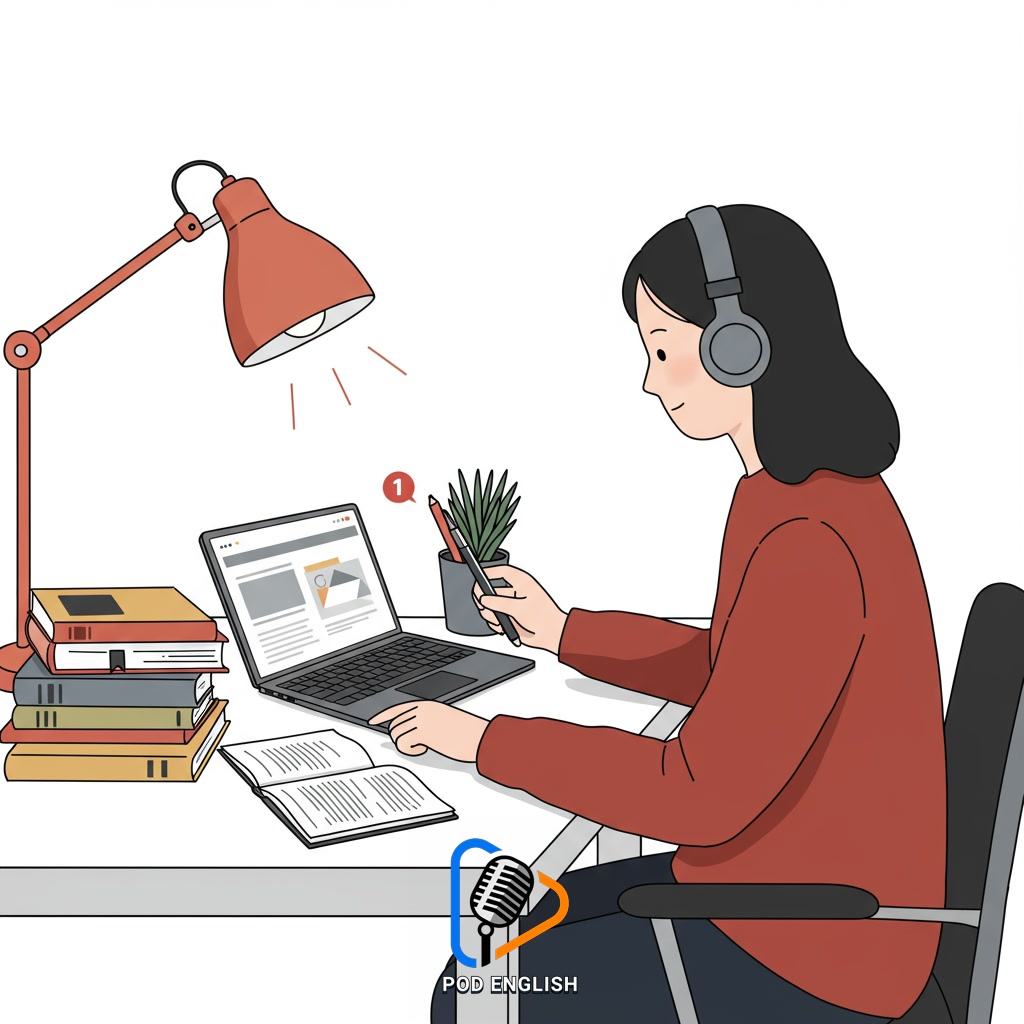Learn English
Boost English Learning Productivity By Creating Your Ideal Study Space

This content explores how optimizing your study environment can significantly enhance your English learning journey. Creating a dedicated and distraction-free space is key to improving focus and retention. By personalizing your area, you can make the process more enjoyable and effective, ultimately boosting your productivity in learning English.
Table of Contents
- Section 1: Why Your Study Space Impacts English Learning Productivity
- Section 2: Essential Elements of an Ideal English Study Area
- Section 3: Practical Steps to Design and Set Up Your Space
- Section 4: Minimizing Distractions for Focused English Study
- Section 5: Organizing Your English Learning Resources
- Section 6: Maintaining Your Space for Consistent Learning
Section 1: Why Your Study Space Impacts English Learning Productivity
Your study space is far more than just a table and chair; it’s a crucial element influencing your English learning productivity. A well-organized and designated area signals to your brain that it’s time to focus on language acquisition. By minimizing distractions – like clutter, noise, or easy access to unrelated activities – you create an environment where concentration can thrive. This enhanced focus directly impacts your ability to absorb new vocabulary, understand complex grammar, and practice effectively. Conversely, a cluttered or distracting space makes it harder to stay on task, leading to reduced retention and slower progress in your English studies. Investing time in creating your ideal study spot is an investment in more efficient and effective learning.

Why Your Study Space Impacts English Learning Productivity
Section 2: Essential Elements of an Ideal English Study Area
Building on the idea that your study space signals focus, let’s delve into the essential elements that make an ideal English learning environment truly effective. First and foremost is a quiet location, free from common household distractions like television or unrelated conversations. Your setup should include a comfortable chair and a desk or table at an ergonomic height to support long study sessions without discomfort. Good lighting, ideally a mix of natural and task lighting, is vital to prevent eye strain. Ensure all your English learning materials – textbooks, dictionaries, notebooks, pens, and any digital devices – are neatly organized and readily accessible. Minimizing clutter helps maintain focus. By incorporating these fundamental components, you create a dedicated zone where your brain knows it’s time to concentrate on mastering English, significantly boosting your productivity.

Essential Elements of an Ideal English Study Area
Section 3: Practical Steps to Design and Set Up Your Space
Building on the importance of a quiet location, setting up your ideal English learning space involves practical steps. First, select a comfortable desk and chair that promote good posture, as you’ll spend significant time here. Ensure adequate lighting, ideally natural light supplemented by a desk lamp, to reduce eye strain. Organize your essential English learning materials – textbooks, notebooks, dictionaries, and perhaps flashcards – neatly within easy reach. Minimize visual clutter; a clean space helps maintain focus. Consider adding a small plant or a personal item that brings you a sense of calm or motivation. Finally, establish a routine of keeping the space tidy after each study session, reinforcing its purpose as a dedicated zone for boosting your English skills.

Practical Steps to Design and Set Up Your Space
Section 4: Minimizing Distractions for Focused English Study
Building on establishing a dedicated study space, minimizing interruptions is crucial for deep focus when learning English. Even in a comfortable setting, external distractions like phone notifications, social media alerts, and background noise can easily pull your attention away. To combat this, make a conscious effort to silence your phone or put it in another room during study sessions. Consider using noise-canceling headphones if your environment is noisy. Inform family members or roommates about your study schedule to reduce interruptions. A clutter-free desk also helps minimize visual distractions. By actively removing these disruptions, you create a mental and physical space where your brain can concentrate solely on English vocabulary, grammar, and listening, significantly boosting your learning efficiency and retention.

Minimizing Distractions for Focused English Study
Section 5: Organizing Your English Learning Resources
Following the creation of a distraction-free study zone, the next step towards boosting productivity is organizing your English learning materials effectively. A cluttered space, whether physical or digital, can lead to wasted time searching for resources and disrupt your focus. Start by grouping your materials logically: textbooks and workbooks together, separate notebooks for vocabulary, grammar, and practice exercises, and dedicated folders for digital resources like PDFs, audio files, and links. Utilize tools like binders, file organizers, or digital note-taking apps to keep everything easily accessible. Color-coding notes or using labels can also help you quickly locate specific information. Regularly decluttering your space and files ensures that your learning environment remains supportive and efficient, allowing you to spend more time actively learning and less time searching.

Organizing Your English Learning Resources
Section 6: Maintaining Your Space for Consistent Learning
Creating an ideal study space is just the first step; maintaining it is crucial for long-term productivity in learning English. A clean and organized area isn’t a one-time effort, but an ongoing habit. Regularly tidying up ensures that distractions don’t creep back in, making it easy to sit down and start studying whenever you need to. When your space is consistently ready, it reduces the mental barrier to beginning your study sessions. This consistency in maintaining your environment directly supports consistency in your learning habits, reinforcing the routine and making your English practice more effective and less of a chore over time. Make a habit of spending a few minutes each day or week to keep your study zone neat and inviting.

Maintaining Your Space for Consistent Learning













